detail profile klaus florian vogt
Peran Yang Di Mainkan Klaus Florian Vogt
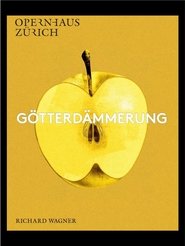 Der Ring des Nibelungen in a...
Der Ring des Nibelungen in a...Götterdämmerung 2024
Der Ring des Nibelungen in a production of the Zürich opera house, recorded 2024. "Dramatic music-making at its finest". In the hands of General Music Director Gianandrea Noseda and Stage Director Andreas Homoki, Wagner's myth is represented as "a dysfunctional family of gods" (The Independent) in a polished yet unpretentious production that underscores the humanity of the characters, who are performed by the same exceptional cast of singers across all four operas.
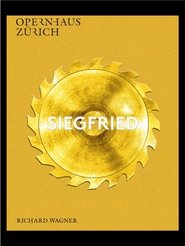 Der Ring des Nibelungen in a...
Der Ring des Nibelungen in a...Siegfried 2024
Der Ring des Nibelungen in a production of the Zürich opera house, recorded 2024. "Dramatic music-making at its finest". In the hands of General Music Director Gianandrea Noseda and Stage Director Andreas Homoki, Wagner's myth is represented as "a dysfunctional family of gods" (The Independent) in a polished yet unpretentious production that underscores the humanity of the characters, who are performed by the same exceptional cast of singers across all four operas.
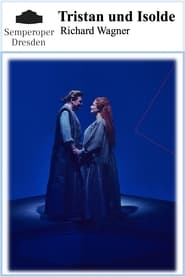 Through the power of a love...
Through the power of a love...Tristan und Isolde 2024
Through the power of a love potion, Tristan and Isolde have fatefully fallen for each other, but Princess Isolde is promised to Marke, the king and Tristan's liege lord. The lovers live their connection in secret, which inevitably has to be discovered and leads to catastrophe. The visually stunning production by Marco Arturo Marelli prepares the ground for the secret of this love in space and color, captured in Richard Wagner's opera, which premiered in 1865, in which the music becomes almost the sole carrier of the plot.
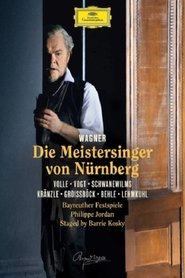 The highpoint of the 2017 Bayreuth Festival...
The highpoint of the 2017 Bayreuth Festival...Die Meistersinger von Nürnberg: Bayreuther Festspiele 2018
The high-point of the 2017 Bayreuth Festival, Barrie Kosky’s astonishingly entertaining and convincing new Meistersinger is a triumph: a production of enormous insight and great quality... that plumbs the depths of both the opera and its composer.
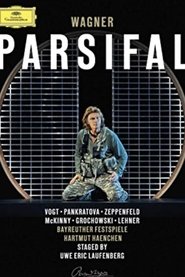 German composer Richard Wagner wrote Parsifal...
German composer Richard Wagner wrote Parsifal...Wagner: Parsifal 2017
German composer Richard Wagner wrote Parsifal, which is a three-act opera that tells the story of the title character's quest to save the Knights of the Holy Grail by returning the Holy Spear, healing King Amfortas, and carrying out the sacred ceremony of uncovering the Holy Grail.
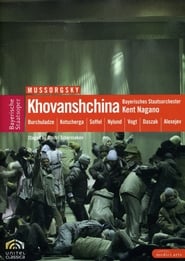 Kent Nagano superbly masters the challenges...
Kent Nagano superbly masters the challenges...Mussorgsky: Khovanshchina 2012
Kent Nagano superbly masters the challenges presented by this score, shapes the dynamics with subtle intensity, and casts the score in a mellow glow. As Marfa, the spurned lover of Ivan Khovansky‘s son Andrei, Doris Soffel unfolds such a rich palette of sonorities, from the pathos of the lower ranges to shaded discant heights, that “one is tempted to speak of a Russian mezzo”. The final chorus, which Mussorgsky did not compose, is played in the orchestrally transparent version of Igor Stravinsky – the third great Russian composer who contributed to making “Khovanshchina“ a timeless, gripping stage work. With his stripped-down sets and historicising costumes, director Dmitri Tcherniakov, one of the new voices of contemporary Russian theatre, builds a bridge to the political present. A lesson in history and music!
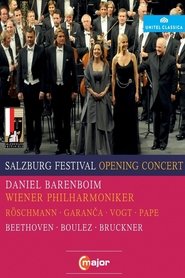 This recording features the opening concert...
This recording features the opening concert...Salzburg Festival Opening Concert 2011
This recording features the opening concert of the Salzburg Festival in 2010, in which the Festival celebrated its 90th anniversary and the 50th anniversary of the Great Festival Hall. Daniel Barenboim conducts the Vienna Philharmonic and Chorus State Opera Vienna with Dorothea Roeschmann, Franz Josef Selig, and Rene Pape in works by Beethoven, Boulez, and Bruckner.
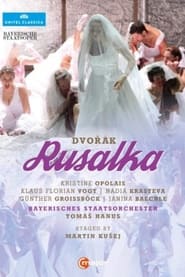 Rusalka is not a happily tragic...
Rusalka is not a happily tragic...Rusalka - Bayerische Staatsoper 2010
Rusalka is not a happily tragic fairy tale. Rusalka’s lake is a dark, damp cellar, where she is imprisoned with her sisters by her abusive father. But once she finally escapes, she is thrown mute and alone into an equally brutal world where she is utterly unequipped to survive, and he increasingly looks like a protector.
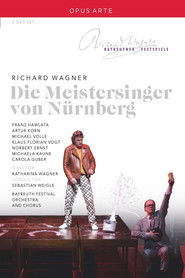 This program captures a live performance...
This program captures a live performance...Die Meistersinger von Nürnberg 2008
This program captures a live performance of the Richard Wagner opera Die Meistersinger von Nurnberg, recorded at the Bayreuth Festival in Germany, under the direction of Katharina Wagner. Some of the vocalists featured in the performance include Franz Hawlata, Artur Korn, Michael Volle, and others.
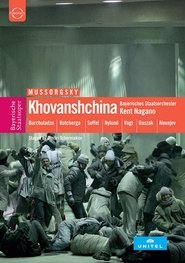 One of Modest Mussorgskys great talents...
One of Modest Mussorgskys great talents...Mussorgsky: Khovanschina 2007
One of Modest Mussorgsky's great talents was his unique ability to transpose words, psychological states, and even physical movements, into music. Kent Nagano rises magnificently to the challenges presented by this score. And Dmitri Tcherniakov's fascinating production emphasizes the timeless quality of this sombre tale of intrigue and power struggles reminiscent of a Greek tragedy, reflecting Mussorgsky's own maxim: "The past in the present - that is my task."
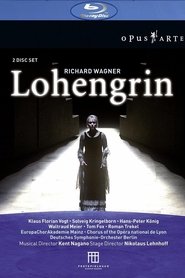 At the Festspielhaus BadenBaden the stage...
At the Festspielhaus BadenBaden the stage...Lohengrin 2006
At the Festspielhaus Baden-Baden, the stage director Nikolaus Lehnhoff signs a remarkable production of Wagner's LOHENGRIN, the third of the German composer's main operas. This production stars an incredible cast, including Hans-Peter König, Klaus Florian Vogt, Solveig Kringelborn, Tom Fox and Waltraud Meier, accompanied by the Deutsches Symphonie-Orchester Berlin under Kent Nagano's baton.
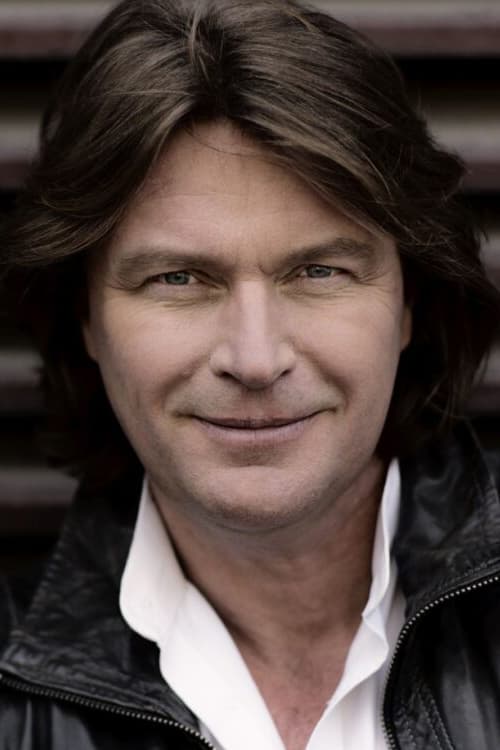
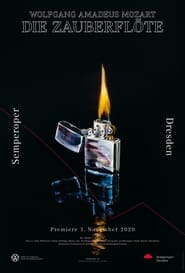
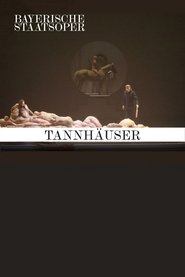
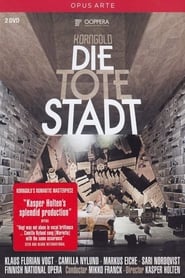 This Finnish National Opera production of...
This Finnish National Opera production of...